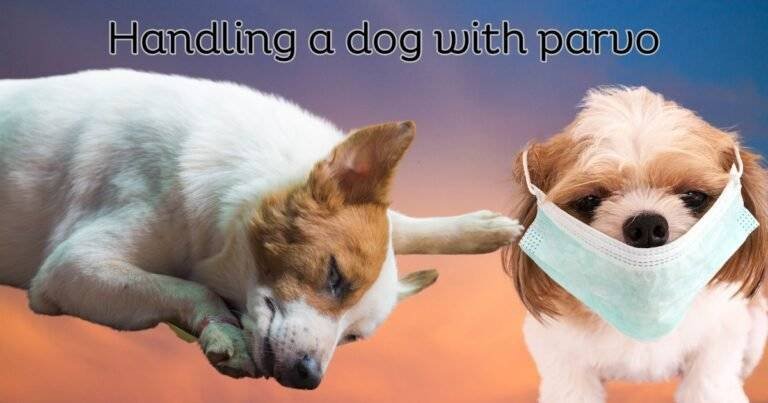One of the most touching and joyous events you may have in your life is welcoming a dog. Your heart can be quickly stolen by those wagging tails, cute little paws, and trusting eyes. But adopting a puppy into your house is not a decision that should be made hastily.
Like other pets, puppies have their own set of duties and difficulties. They demand commitment, perseverance, and time. To develop into contented and well-adjusted adult dogs, they require sufficient attention, instruction, and love. Therefore, it’s important to evaluate your readiness before making the thrilling transition to puppy motherhood.
We’ll discuss the important variables you should take into account when determining whether you’re ready for adopting a puppy in this blog post. We’ll give you the knowledge and information you need to make a wise choice, from analyzing your lifestyle to investigating breeds, training, health care, and beyond. Let’s set out on this adventure together to make sure that you make your decision to bring a furry buddy home with open minds and open hearts.
Why are you adopting a puppy?
The first and foremost reason is that they are the cutest balls of fur. Is any other reason needed beyond this? However, there are a few others like:
Companionship:
Puppies can offer companionship and unconditional love. When you go ahead with adopting a puppy, you can receive the emotional support and companionship that many people seek. You can never be alone when you have a ball of fur, full of energy zooming around the house every five minutes.
Family animal
Families could want a puppy to instill a feeling of duty in their kids and teach them how to care for animals. Adopting a puppy may provide the whole family joy and fun as well. Kids grow up learning about responsibilities and how to take care of a non-human family member.
Activity and Exercise:
Puppies need to be physically active every day, which encourages their owners to lead more active lives. Both the puppy and the owner benefit from activities like walks and playtime. If you wish to add exercise to their daily regime, your puppy has you covered.

Protection and Security:
Some individuals desire a puppy so that it can act as a guard dog or provide their home with a sense of security. Breeds with strong protective instincts like German shepherd, Belgian Melanois and others are well known for their guarding attributes and make for amazing security dogs.
Love without conditions
The unadulterated and constant affection that dogs, even puppies, offer, attracts a lot of people. Their devotion and dedication can bring their owners a great deal of happiness. You never sleep or wake up alone when you have a dog in the house.
Are you prepared for adopting a puppy?
Before getting a puppy, it’s important to assess your way of life to see if it fits with the obligations and requirements of puppy ownership. Puppies need time, care, and a good environment to grow into healthy adults. When evaluating your lifestyle, bear in mind the following important factors:
Daily Routine
After adopting a puppy, your laid-back lifestyle won’t work. Are you ready to follow a strict schedule from morning to night? Puppies need you for several hours every day for play, socializing, training, and feeding. You have to take them out at regular intervals and spend plenty of time with them bonding and understanding their body language. Can you make that much time?
Playtime and Exercise
Are you physically fit and able to give a puppy the exercise and playtime they require? Choose a breed that matches your level of activity because different breeds have different exercise needs. If you are not much into exercise, go for a breed that needs low activity levels.
Living Situations
Do you reside in a pet-friendly setting, such as an apartment building or a home with a safe yard? Are there any rules or limitations on having dogs in your neighborhood? Find out these details from your homeowner association to avoid issues later on.
Monetary considerations
Can you afford the puppy’s early expenses, such as adopting a puppy process or purchase fees, immunizations, and supplies (crate, food, toys, etc.)? Are you prepared financially for recurring costs like food, grooming, veterinary care, and unanticipated medical bills?

Travel and Work
Do you have a plan in place for your puppy’s care while you are away? How frequently do you travel for business or pleasure? Once you have gone through with adopting a puppy, the new puppy shouldn’t be left alone for long periods since they need continual supervision.
Family dynamics
Are all members of your family on board with getting a puppy, and are they willing to share the duties of caring for it? The responsibility of the puppy must be equally divided amongst the family members so everyone has a part to play.
For adopting a puppy, which dog breed should you opt for?
When adopting a puppy, finding a breed that fits your lifestyle and tastes is vital because every breed has different traits, energies, and temperaments. It is your responsibility to find the right breed for your needs before you commit. Here are some of the factors you should consider when looking at different dog breeds:
Your Lifestyle
Consider your everyday activities, living arrangements, and routine. Do you lead an active lifestyle or do you favor a more laid-back one? Do you reside in a home with a yard or an apartment? The breed you should select will be largely influenced by your lifestyle.
Size Matters
Choose a dog that is the appropriate size for your residence and way of life. While larger breeds can need more space and exercise, smaller breeds are more suited for apartments. Do you want a lap dog, a dog that will fit in your purse or a large-sized one?
Energy Level and Personality
While certain breeds are more reserved or guarded, others are more gregarious and social. Think about if you would prefer a calmer, more indoor-oriented pet or a high-energy dog that loves outdoor activities. Don’t make any hasty decisions.

Compatibility with others
If you have kids or other animals (such as cats, hamsters, or other pets), do some research on breeds that are known to get along with family members and other animals. While some breeds may have a higher prey drive, others may be more patient and kind with children.
Intelligence and training
You should take into account your comfort level with training methods. While some breeds could be more independent or stubborn, other breeds are very trainable and eager to please their guardians. For new dog guardians, breeds easy to train are encouraged for adoption.
Health
Examine any potential health problems regarding the breeds. Some breeds are genetically susceptible to specific health issues. Make sure you are equipped to handle any conceivable medical demands.
Adopting a puppy vs. purchasing from breeder
The choice of whether to adopt a dog from a shelter or buy one from a breeder is a significant one that is influenced by your lifestyle, preferences, interests, and values. Both strategies have advantages and disadvantages, particularly for novice dog guardians.
Adopting a puppy from a Shelter:
Pros:
Second chance
Giving a dog in need a loving home is one of the biggest advantages of adopting a puppy from a shelter. Giving shelter dogs a second chance at happiness is tremendously fulfilling because many of them have endured suffering and abandonment.
Wide Range
Puppies and adult dogs of different kinds and sizes can be found in shelters and rescue organizations. You have the chance to discover a dog that fits your preferences and way of life.
Cost-Effective
Most shelters include vaccines, spaying or neutering, and microchipping in the adoption fee, making adoption costs less than buying a dog from a breeder.
Training
Some dogs at shelters might already be trained in basic obedience commands and housebreaking, which would ease their adjustment to your home.

Cons:
Health and behavioral issues
Due to their prior experiences, some shelter dogs may have undiagnosed medical conditions or behavioral problems. It’s critical to be ready for potential behavioral and physical difficulties.
Breed issues:
Finding a specific breed in a shelter can be more difficult if you have your heart set on a particular one.
Buying a Puppy from a Trustworthy Breeder:
Pros:
Known breed traits:
Reputable breeders carefully choose breeding couples to make sure that the looks and temperament of the puppies are in line with the breed standard. In terms of behavior and size, this may result in a more predictable dog.
Breeder Assistance
Buyers of puppies are continuously supported, advised, and guided by good and responsible breeders. The breeders are committed to making sure that the puppies have fulfilling lives.
Pedigree
A breeder can assist you in getting a dog with the appropriate pedigree and ancestry if you’re interested in competing in dog shows or engaging in particular sports like agility or hunting.
Cons:
- It is frequently more expensive to buy a puppy from a reputable breeder than to adopt one from a shelter.
- You might have to wait until a litter is born, depending on the breed, as breeders might not always have puppies available.
- When there are so many dogs in shelters in need of homes, some people question the morality of breeding canines.
Dog-proofing your house
To provide a safe environment for your new furry family member, puppy-proofing your home is crucial. Puppies tend to get in every nook and cranny. So make sure that you have employed every protection needed.
- Keep harmful plants, cleaning products, drugs, and chemicals out of your puppy’s reach. Keep cables concealed and out of sight or use cord protectors.
- Prevent your puppy from accessing staircases or other areas where they could fall or become stuck by installing baby gates.
- To stop your puppy from searching through trash and consuming poisonous objects, use safe, lidded trash cans• Keep small objects like coins, rubber bands, and small toys (choking hazards) out of your puppy’s reach.
- Remove fragile or priceless items from where your puppy can knock them over.
- Use outlet covers or outlet protectors
- Fasten anti-tip brackets to prevent heavy furniture and appliances from falling over your puppy
- Seal windows and balconies tightly or install safety obstacles to avoid falls.
- Designate a safe, puppy-proofed space for the pup when you cannot watch over him.

Are you ready with the supplies?
There are certain items that you must be equipped with before you bring a new puppy home. To make sure you’re prepared for your new furry family member, use the following as your checklist:
- Dog Crate
- Blankets and bedding
- Water and Food Bowls
- Dog Food
- Harness, leash, and collar
- Dog toys:
- Puppy Pee Pads
- Grooming Equipment like brushes, combs, clippers
- Poop Bags
- Dog treats
- Enzyme cleaner
- Dog first-aid kit
- ID tag
Adopting a Puppy: Commitment toward puppy’s health
An essential component of proper pet ownership is dedication to your puppy’s health. A happy puppy is a healthy puppy, thus it is your duty to take care of them for the whole of their existence. The following are some essential ways to show dedication to your puppy’s health:
Consistent Veterinary Care
Make appointments for recurring veterinary examinations. To protect them from diseases, puppies need a series of vaccines and preventive care. For advice on immunizations, deworming, and flea and tick prevention, consult your veterinarian.
A healthy and nourishing diet
Give your dog an age-appropriate, well-balanced diet. For advice on the best diet for your puppy’s breed and size, speak with your veterinarian. Make sure they always have access to fresh, clean water.

Physical Activity and Mental Stimulation
To maintain good physical and mental health, puppies require daily exercise and mental stimulation. Allow them to play, go for walks, and participate in activities every day.
Hygiene and grooming
Your dog can need routine grooming depending on the breed. When necessary, they should brush their hair, cut their nails, and do their teeth and ears. To avoid skin and dental disorders, practice excellent hygiene.
Monitoring for Illness Symptoms
Watch your puppy closely for any symptoms of illness or pain, such as changes in appetite, temperament, or toilet habits. Prompt therapy can result from early identification of health problems.
Neutering or Spaying
For advice on when to spay or neuter your puppy, speak with your veterinarian. This technique can lower the chance of undesired litter and prevent several health problems.
Insurance
To assist in paying for unplanned veterinary costs, think about purchasing pet insurance. Knowing that you can care for your puppy well in the event of crises or medical problems might provide you peace of mind.
Time commitment after adopting a puppy
Time commitment is a crucial component of healthy puppy guardianship. Puppies need a lot of time, care, and attention to develop into well-mannered, content adult dogs. Here are certain factors that will require you to commit your time well in advance:
Daily routine:
After adopting a puppy, you need to become a master of routine. A fixed routine is ideal for puppies. A daily plan that incorporates feeding, bathroom breaks, exercise, playtime, and naps will need to be created. For proper behavioral development and house training, consistency is essential.
House training
It takes time to teach a puppy to use the bathroom outside. Therefore you should take your puppy outside frequently and praise every right move. Be ready to commit weeks or perhaps months to house training.
Playtime and Exercise
Puppies need a lot of exercise to maintain their health and happiness because they have high levels of energy. Every day, schedule a specific time for playtime.

Socialization and Training
It takes effort and patience to train your puppy. Training sessions using positive reinforcement, puppy lessons, and teaching commands are crucial for their development. Additionally, it takes time and effort to socialize your puppy with both people and other animals.
Mental Exercise
Exercise for the body is crucial, but so is mental stimulation. Train your puppy’s brain with puzzle toys, interactive activities, and training sessions like treasure hunts, food puzzles, etc.
Care and Grooming
Set aside time for grooming and upkeep depending on the breed. Maintaining your puppy’s health and looks requires regular brushing, bathing, cutting of the nails, and dental care.
Adjustment Period
Be ready for your puppy to go through an adaptation stage while settling into their new home over the first few months. This may entail restless nights and bleary mornings.
Long-term dedication
Caring for a puppy requires a commitment that can last for more than ten years. As your dog matures into a senior dog, you will have to grow with him and continue to devote care to their health.
Adopting a Puppy: Emotional readiness
A crucial component of adopting a puppy into your life is being emotionally prepared. Even though a puppy can provide you with a ton of joy and company, it’s important to determine whether you’re emotionally prepared for the duties and difficulties that come with puppy ownership.
Tolerance and Patience
Puppies can be excitable, inquisitive, and occasionally mischievous. Are you kind and understanding enough to respond to their puppy tendencies, such as chewing, accidents, and sporadic disobedience, with patience and composure?
Future Perspective
Are you prepared for a commitment that could continue for more than ten years? Dogs are lifelong companions, so you should be emotionally prepared to show them affection and care at all phases of their lives, particularly as they face the difficulties of aging.
Emotional kinship
Puppies need affection, care, and emotional connection. Are you willing to put in the time necessary to establish a solid emotional bond with your puppy, comprehend their needs, and provide a safe and secure environment?

Discipline and training
Consistency, encouraging reinforcement, and transparent communication are necessary for effective training. Are you emotionally ready to devote the necessary time and effort to training your puppy and directing them toward appropriate behavior?
Relationships and Socialization
To grow into well-adjusted adults, puppies need exposure to a variety of people, animals, and settings. Are you prepared to devote time and money to helping your puppy develop positive social skills?
Wellness and Health
Do you have the emotional wherewithal to put your puppy’s health and welfare first? This includes scheduling routine veterinary visits, receiving preventive treatment, and selecting an appropriate diet and exercise regimen.
End-of-life decisions
Even though it’s unpleasant to think about, emotional readiness includes planning how you’ll handle your dog’s end-of-life decisions. This includes deciding whether to end their lives and giving them consolation in their last moments.
Conclusion
It’s important to think carefully before deciding on adopting puppy. It’s a decision that entails a variety of duties, difficulties, and—most importantly—rewards. To guarantee a successful and satisfying experience as a puppy guardian, it is essential to take several aspects into account as you set out on this exciting journey.
From determining your readiness and researching breeds to puppy-proofing your house and committing to your puppy’s physical and psychological well-being, we’ve covered the key elements of puppy ownership. For your new furry family member to live in a secure, joyful, and loving home, each of these factors is essential.
Consider your readiness as you get ready for adopting a puppy. Start with acquiring the resources you’ll need, and educate yourself on correct handling and training techniques. Consult with doctors, trainers, and knowledgeable dog owners for advice to make sure you’re ready for the adventure that lies ahead. If you need more time to prepare then take it but do not rush into a decision. Getting a dog is a lifelong commitment so take the time to prep yourself before you say yes.
Frequently Asked Questions
What factors should I consider before adopting a puppy?
Research breeds to ensure compatibility and think about your lifestyle, available space, and time commitment before adopting.
How do I choose the right puppy for my family?
Size, energy level, and temperament should be considered. Check that the puppy’s parents are a good fit for your family by meeting them if you can.
What vaccinations and medical care does a puppy need?
Puppies require regular checkups with the vet and a puppy vaccine schedule. For a healthy and happy pet, make sure you know what they need in terms of health care.
How can I train and socialize my new puppy?
Acquire necessary items such as food, bowls, a cozy bed, toys, and tools for grooming. Secure potential danger spots and make a designated safe area to help puppies adjust to their new home.











